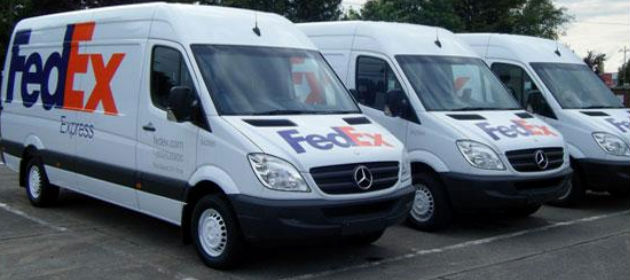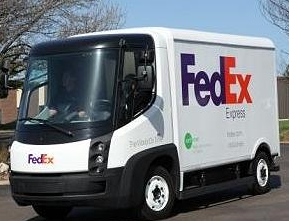FedEx Adds 1,900 New Lightweight, Fuel Efficient Vehicles to Fleet
 FedEx Express, a unit of FedEx Corp. (NYSE: FDX) and the world’s largest express transportation company, continues rapid progression towards its recently-increased vehicle fuel efficiency goal by adding 1,900 new fuel efficient vehicles to its fleet.
FedEx Express, a unit of FedEx Corp. (NYSE: FDX) and the world’s largest express transportation company, continues rapid progression towards its recently-increased vehicle fuel efficiency goal by adding 1,900 new fuel efficient vehicles to its fleet.
In 2008, FedEx Corp. set the U.S. transportation industry’s first fuel efficiency goal with a commitment to improve the overall fuel efficiency of the FedEx Express vehicle fleet 20 percent by 2020, as compared with its 2005 performance. In March 2013, less than five years later, FedEx Express surpassed this goal with a more than 22 percent cumulative improvement in fuel economy for its vehicles and set a revised goal to improve the fuel efficiency its vehicle fleet 30% by 2020.
FedEx Express continues to pursue a holistic three-tiered vehicle strategy to improve the fuel efficiency of its fleet: Reduce, Replace and Revolutionize. This strategy allows FedEx to optimize its vehicle operations by working with a variety of manufacturers to advance vehicle technologies for the future while making the best use of the conventional vehicles currently operated by the company. Further, matching the right vehicle to each route has made the biggest single impact on the fleet’s overall fuel efficiency.
 As part of this strategy, FedEx Express has recently made the following purchases to increase the overall fuel efficiency of its vehicle fleet:
As part of this strategy, FedEx Express has recently made the following purchases to increase the overall fuel efficiency of its vehicle fleet:
FedEx Express has recently purchased 1,900 lightweight, composite-body Reach vehicles from Spartan Motors, a division of Utilimaster. These will join the 400 Reach vehicles already in service, giving FedEx Express the largest lightweight, composite-body vehicle fleet in the industry, with approximately 2,300 vehicles. The Reach van, with its four-cylinder, 3.0-liter Isuzu diesel engine, demonstrates a 35% fuel efficiency improvement over traditional vehicles in the FedEx Express fleet. The lower-weight body design, along with the engine, allows every Reach to significantly reduce fuel consumption and exhaust emissions compared to conventional walk-in vans.
FedEx is also working with XL Hybrids, a developer of low-cost hybrid electric powertrain system, to convert ten conventionally-powered panel vans into more fuel-efficient, hybrid vehicles. This conversion not only reduces fuel consumption and emissions, but will also extend the engine life in fleet vehicles by supplementing the necessary power with their hybrid-electric drive train.
FedEx Express also continues to work with educational and research institutions to improve electric and alternative-energy vehicle technologies:
FedEx Express is the world’s largest express transportation company, providing fast and reliable delivery to more than 220 countries and territories. FedEx Express uses a global air and ground network to speed delivery of time-sensitive shipments, by a definite time and date with a money-back guarantee.










